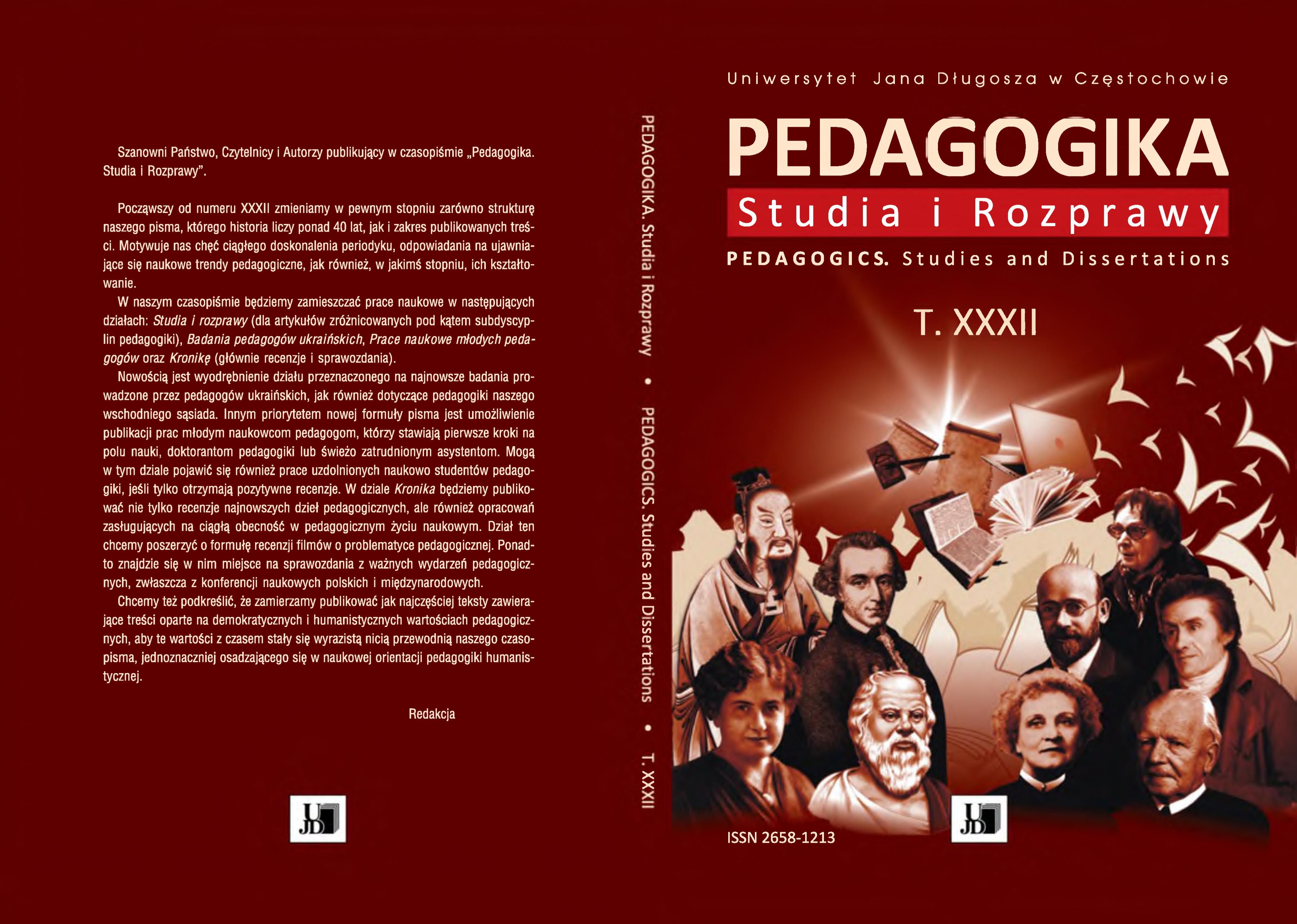TRENDS OF PROFESSIONAL TRAINING OF MASTERS OF PHILOLOGY IN UNIVERSITIES OF POLAND
DOI:
https://doi.org/10.16926/p.2023.32.08Keywords:
educational trends, countries of the Visegrad group, master of philology, professional development, educational reformsAbstract
The article examines various approaches to defining trends in philosophy, sociology, and education. Emphasis is placed on the importance of the trend as a scientific category of comparative pedagogy, which is understood from the position of providing recommendations for the implementation of foreign experience for the development of national education.
We analyze educational trends as trends that characterize qualitative changes in the direction of educational development and are directly related to the professional training of Masters in philological specialties. General trends have been identified as typical for the countries of the Visegrad Group throughout all stages of the development of higher education in the participating countries, but their manifestation is related to the development of the entire European higher education.
We consider leading trends to be trends that are decisive at a certain stage of the development of higher education and can be both common and different.
Education reforms started in Poland earlier than in other B4 countries. Attention is paid to the analysis of such modern educational trends in the professional training of masters of philological specialties in Polish universities, such as: the introduction of information and communication technologies, the formation of competencies as the results of Master's studies, the implementation of pan-European recommendations on language education; formation of EVO as a standard of knowledge about Europe; development of international cooperation of universities as a process of internationalization of education, participation in academic mobility.
It was concluded that the process of reforming higher education in Poland is characterized both by trends associated with changes under the influence of provisions, EC documents and the Bologna reform, and by those that appeared in the process of formation of B4. Conceptual trends in the professional training of masters in philology, which each B4 country takes into account in order to preserve its national education, are also important for Polish education.
References
Baza jednostek i kierunków ocenionych. Retrieved from: http://www.pka. edu.pl/portfolio-item /baza-ocen.
Dictionary (2019). Retrieved from: https://www. dictionary.com/browse /tendency.
Philosophical encyclopedic dictionary NAS of Ukraine (2002). H. S. Skovoroda Institute of Philosophy. V. I. Shinkaruk (Ed.) and others. Kyiv: Abrys.VI.
Klymenko, Yu. (2011). Professional mobility of future teachers in the countries of the European Union: autoref. thesis ... candidate ped. Sciences: 13.00.04/ Uman. state ped. University named after P. Tychyny. Umanʹ.
Lavrychenko, N. (2006). Methodological aspects of comparative pedagogical research. The way of education. No. 2. 17–23.
Lokshina, O. (2011). Tendency as a scientific category of comparative pedagogy. Comparative pedagogical studies No 2(8). Retrieved from: http://pps.udpu.org.ua/article /view/18585/16329. 2011].
Ohienko, O. (2008). Trends in the development of adult education in Scandinavian countries. Sumy: Hellas.
Piatakova, H. (2020). Educational trends in the countries of the Visegrad Group and their classification: report materials. of science conf. Faculty of Pedagogical Education. Lviv: LNU named after Ivan Franko, Vol. 5. 176–181.
Program studiów wyższych rozpoczynających się w roku akademickim 2018/2019). Retrieved from: Fil-ros.-stopień_2018_2019.pdf-Foxit-Reader.
Dictionary of foreign words (1974). O.S. Melnychuk (Ed.) Kind. 2nd, ex and additional Kyiv: Main Editorial Office "Ukrainian Soviet Encyclopedia".
Sociology: a dictionary of terms and concepts (2005). E.A. Bilenky. M.A. Kozlovets, V.O. Fedorenko, M. A. Kozlovets (Ed.). Kyiv: Condor.
Sokolova, I. (2008). Professional training of the future teacher-philologist in two specialties: monograph. S. Sysoeva (Ed.). Mariupol; Dnipro: ART-PRESS.
Strategia rozwoju szkolnictwa wyższego w Polsce do roku 2010 (2010). Retrieved from: https://www.mimuw.edu.pl/~sjack/usw /strat_pliki/strategia.htm.
Trendy. Interpretacje і konfrontacje. (2018). Retrieved from: http:// wmbc. olsztyn.pl /Content/5521/Trendy_Interpretacje konfrontacje-min.pdf.
Ustawa z dnia 20 lipca 2018 r. Prawo o szkolnictwie wyższym i nauce (2018). Retrieved from: https://www.uw.edu.pl/wp-content/uploads/2018/09/ustawa. pdf. 120 s.
Vasylyuk, A., Korsak, K., Yakovets, N. (2002). Essays on comparative pedagogy. Nizhin: Ed.- publisher. NDPU department.
Wawrzak-Chodaczek, M. (2019). Edukacja w wymiarze nowych technologii informacyjno-komunikacyjnych. W: Theoretical and practical aspects of the formation of educational space at the institutional level: global and domestic dimensions. Collection of theses of the international conference. Lviv. 36–37.
Woźnicki, J., red. (2015). Opis prac nad Programem rozwoju szkolnictwa wyższego do 2020 r. i jego najważniejsze elementy. Program rozwoju szkolnictwa wyższego do 2020 r. Część I, FRP, KRASP, Warszawa.


